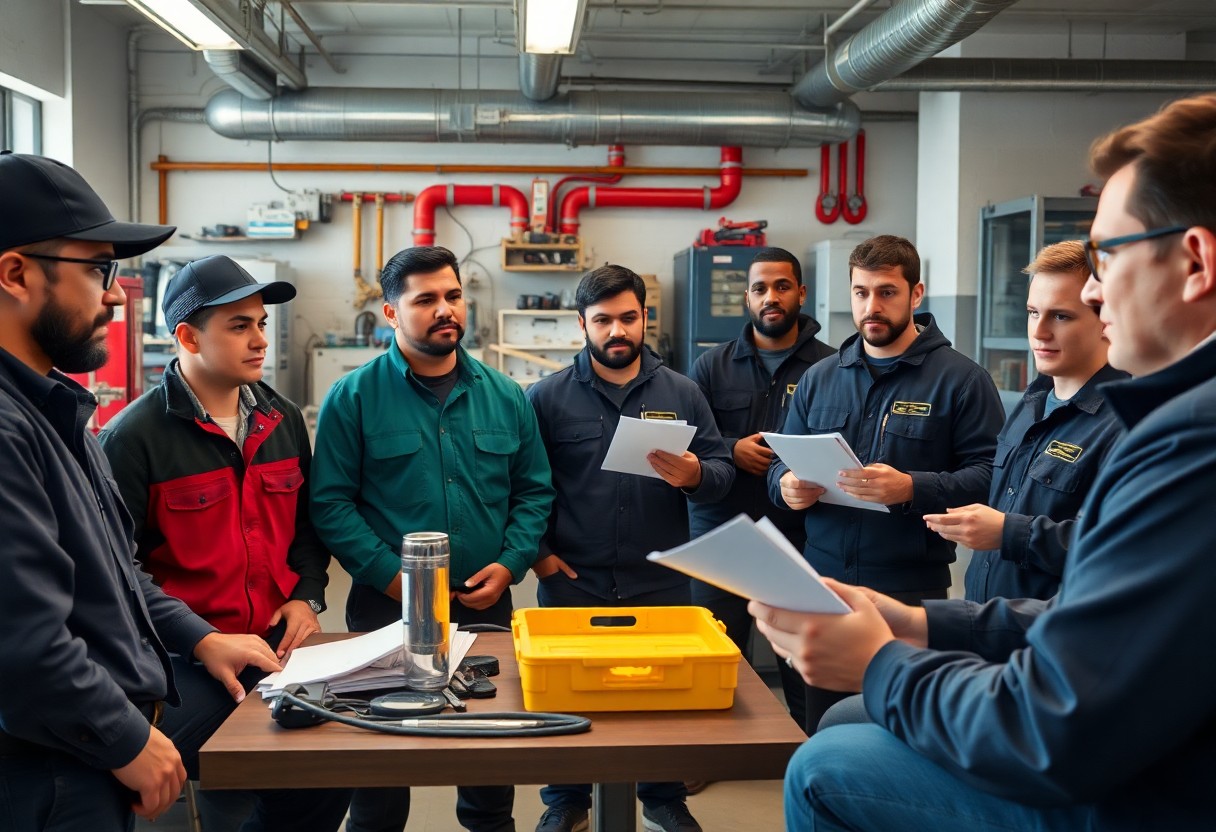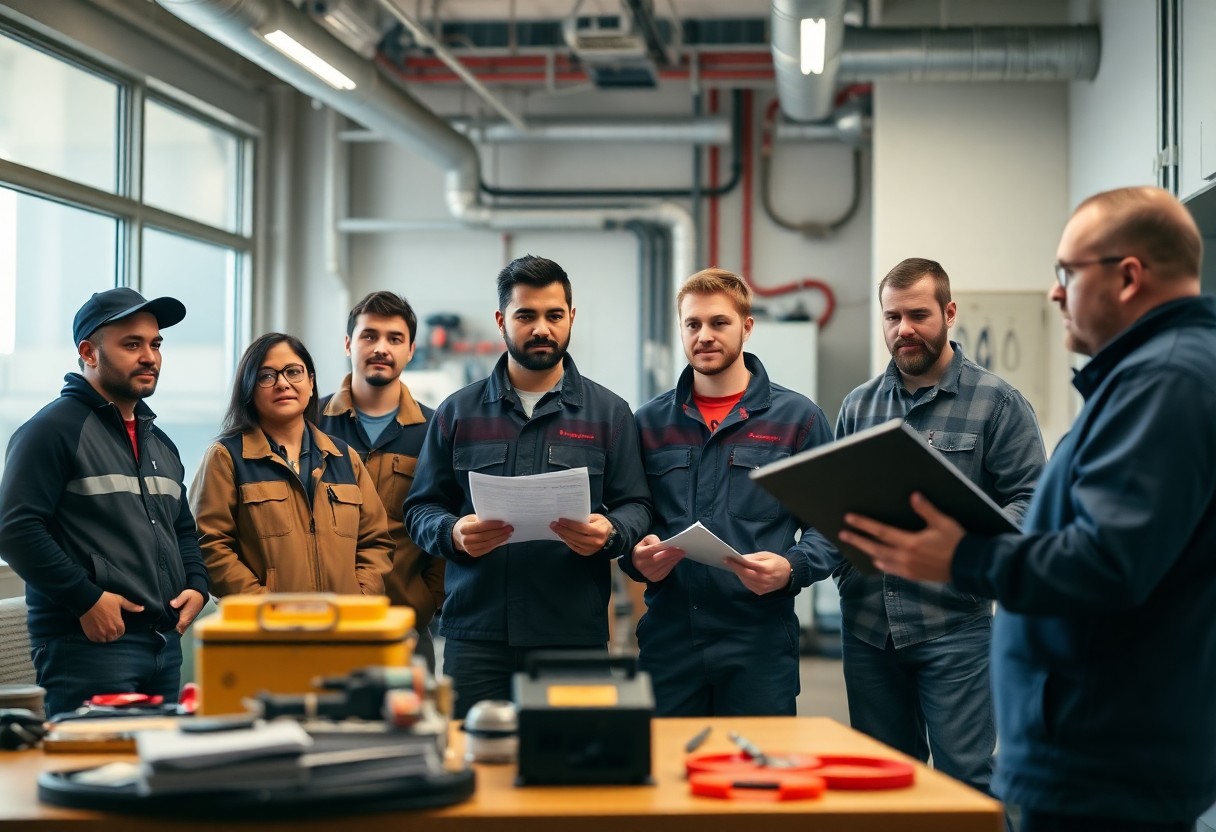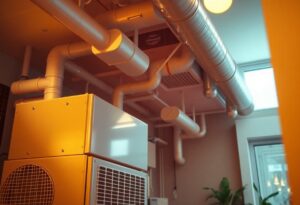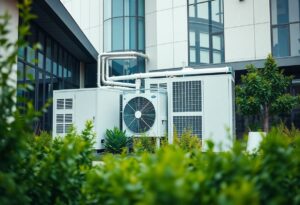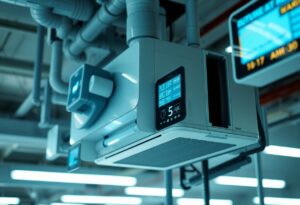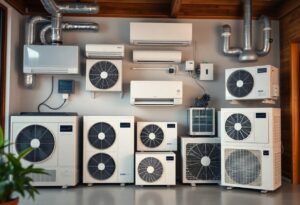Best Must-Ask HVAC Interview Questions for Hiring Skilled Professionals
Interviewing HVAC candidates can be challenging, but asking the right questions ensures you hire a skilled professional who meets your needs. You want to assess not only their technical expertise but also their ability to troubleshoot, prioritize safety, and communicate effectively. By focusing on these key areas, you can avoid costly mistakes and secure a technician who enhances your team’s performance. This guide helps you identify necessary HVAC interview questions that reveal a candidate’s true capabilities, empowering you to make an informed hiring decision with confidence.
Key Takeaways: HVAC Interview Questions
- Focus on technical skills by asking candidates about their experience with HVAC systems, troubleshooting, and maintenance procedures.
- Include questions that evaluate the candidate’s knowledge of safety protocols and compliance with industry standards.
- Assess problem-solving abilities through scenario-based questions related to common HVAC issues.
- Gauge the applicant’s familiarity with energy-efficient technologies and sustainability practices in HVAC systems.
- Explore their customer service skills and ability to communicate effectively with clients and team members.
- Inquire about certifications, licenses, and continuous education efforts to ensure up-to-date qualifications.
- Consider their adaptability to modern HVAC operations’ new tools, equipment, and software.
Importance of HVAC Interview Questions
Understanding HVAC Systems
A strong grasp of HVAC systems is the foundation for skilled professionals in this industry. When conducting interviews, asking targeted questions about the candidate’s knowledge of various HVAC components, such as heating units, cooling systems, ventilation, and refrigeration cycles, allows you to evaluate whether they truly comprehend the complexities involved. This understanding is necessary because every system operates differently, and your hire must be capable of diagnosing and resolving issues efficiently to maintain comfort and safety.
After all, HVAC technology continues to evolve, incorporating newer, energy-efficient designs and smart controls. You want someone who isn’t just familiar with the basics but also stays updated on the latest industry advancements. By asking HVAC interview questions that cover both traditional and modern HVAC systems, you ensure that the professional you bring on board can handle the diversity of challenges your business or clients might face, minimizing downtime and high repair costs.
Importance of Skills Assessment
After evaluating theoretical knowledge, assessing practical skills becomes vital to confirm the candidate’s ability to perform on the job. HVAC work demands hands-on expertise, from troubleshooting electrical circuits to handling refrigerants safely. The right HVAC interview questions should probe these skill areas so you can determine if the applicant’s capabilities align with your expectations.
After all, many HVAC issues can pose dangerous risks such as electrical shocks, refrigerant leaks, or gas hazards. You need professionals who not only understand these hazards but are also disciplined enough to follow safety protocols meticulously. Your questions should reflect scenarios that reveal their readiness to work safely under pressure and their problem-solving mindset.
HVAC Interview Questions focusing on real-world tasks and problem-solving scenarios bring out a candidate’s practical experience and ability to adapt. These help you gauge expertise beyond textbook answers and reveal how they apply their skills in unpredictable situations, which directly impacts operational efficiency and safety.
Role of Experience in HVAC
Behind every qualified HVAC technician is a wealth of experience that builds confidence and competence. When you ask about past projects or specific challenges candidates have faced, you gain insights into their depth of knowledge and work ethic. The nuances of HVAC repair and installation often come through experience, especially when dealing with complex systems or unexpected malfunctions.
Experience also indicates a candidate’s ability to interact professionally with clients and understand their needs—skills that influence customer satisfaction and long-term business success. Experienced professionals tend to anticipate problems before they escalate, ensuring smoother operations and fewer emergency calls for you.
Consequently, emphasizing experience in your interview questions helps you identify those who bring both knowledge and practical wisdom to your team, setting your business apart through reliability and expert service delivery.
Technical HVAC Interview Questions to Evaluate Knowledge
Types of HVAC Systems
Any skilled HVAC professional should demonstrate a clear understanding of various types of HVAC systems. These systems include split systems, packaged units, heat pumps, and ductless mini-splits, each serving distinct applications and operational benefits. You want to explore how well a candidate can differentiate these systems based on their design, efficiency, and suitability for specific environments.
Against this background, consider asking HVAC interview questions that reveal familiarity with single-stage versus multi-stage systems, variable refrigerant flow (VRF), and geothermal HVAC options. Assume that a proficient professional will relate the advantages and limitations of each system type, including how factors like climate and building layout influence system choice.
| System Type | Key Characteristics |
| Split Systems | Separate indoor and outdoor units, common in residential HVAC systems |
| Packaged Units | Compact units with all components together, ideal for limited space |
| Heat Pumps | Provides heating and cooling by transferring heat, energy-efficient |
| Ductless Mini-Splits | No ductwork required, good for zone cooling or heating |
| Geothermal Systems | Uses ground temperature for heat exchange, highly sustainable |
Refrigeration and Thermodynamics Principles
Above all, your candidate should show strong proficiency in core refrigeration and thermodynamics principles that govern HVAC operation. These include understanding the refrigeration cycle, heat transfer, and properties of refrigerants. You can evaluate knowledge on how compressors, evaporators, condensers, and expansion valves interact to regulate temperature and energy flow.
It helps to probe their grasp of laws like the first and second laws of thermodynamics, as well as concepts such as enthalpy, entropy, and superheating. Assume that a knowledgeable technician will articulate how changes in pressure and temperature affect refrigerant state and system efficiency.
Considering that refrigeration cycles are central to HVAC function, your questions should also uncover familiarity with newer, environmentally friendly refrigerants and how thermodynamic changes impact system diagnostics and repair strategies.
Ductwork Design and Installation
Along with system knowledge, a proficient HVAC technician must understand ductwork design and installation. Good design ensures efficient airflow, minimizes energy loss, and maintains indoor air quality. You want to evaluate their expertise in sizing ducts according to load requirements and using materials suited for specific environments.
Discussing the placement of duct runs, insulation practices, and sealing methods can reveal practical skills. Assume that an effective professional will demonstrate awareness of how proper duct design affects overall system performance and comfort levels.
With proper ductwork installation, you also ensure reduced noise and balanced air distribution throughout spaces served by the HVAC system, which directly impacts occupant satisfaction and system longevity.
HVAC Control Systems and Thermostats
Before advancing, evaluate how your candidate understands HVAC control systems and thermostats. These components regulate temperature settings and system cycling, optimizing both comfort and efficiency. Questions about different types of thermostats, programmable versus non-programmable, and smart controls will test their knowledge.
Be sure to cover how sensors and control logic interact within modern HVAC systems, including zoning controls that customize conditions for different areas. Assume that a skilled individual will explain how proper control integration reduces energy costs and prevents system wear.
Thermodynamics principles also extend to control strategies, as effective thermostats ensure system operation remains within ideal temperature ranges and energy consumption is minimized through precise regulation.
Troubleshooting Techniques
Questions regarding troubleshooting techniques can highlight a candidate’s practical problem-solving skills. A technician’s ability to diagnose faults rapidly through symptom analysis and the use of diagnostic tools reflects their depth of experience. Explore scenarios related to airflow issues, refrigerant leaks, electrical problems, and control malfunctions.
Assuming your professional applies systematic approaches, such as isolating variables and testing components, they should demonstrate troubleshooting that avoids unnecessary repairs and expedites restoration.
To maintain HVAC system reliability, expertise in troubleshooting ensures you minimize downtime and optimize maintenance schedules, safeguarding system performance and client satisfaction.
HVAC Interview Questions to Assess Problem-Solving Skills
Not every HVAC professional has the ability to effectively troubleshoot and resolve issues under pressure. As you interview candidates, you want to examine how they think through complex problems and arrive at solutions, especially when the stakes are high. This section of your HVAC interview questions will help you identify individuals who demonstrate logical thinking, resourcefulness, and composure in challenging situations.
Scenario-Based Problem Resolution
One of the best ways to evaluate problem-solving skills is to present candidates with real-world scenarios they might face on the job. Asking them to walk through how they would diagnose and solve a malfunctioning HVAC system reveals their technical knowledge and decision-making process. You gain insight into whether they prioritize safety, efficiency, and accuracy while handling frequent or uncommon issues.
Encourage your candidate to explain each step they would take, such as gathering information, isolating the problem source, testing hypotheses, and referring to manuals or industry standards. This approach not only tests their expertise but also shows you how methodically they operate under pressure, which is often required when resolving technical problems onsite.
Handling Customer Complaints
For an HVAC professional, problem-solving doesn’t stop at the mechanical level—it often involves managing customer concerns effectively. Asking how they handle difficult complaints can reveal emotional intelligence and their ability to maintain professionalism during stressful conversations. You want to see if they can empathize with customers while still focusing on resolving the technical issue.
These questions also help determine whether the candidate takes initiative to follow up and ensure customer satisfaction, key qualities for long-term success and a positive business reputation. The way they describe de-escalating tense situations will show you how they balance interpersonal skills with technical know-how.
Another aspect to probe is how they prioritize communication, especially when technical delays or unexpected complications occur. Skilled professionals keep the customer informed and set realistic expectations, preventing frustration and fostering trust.
Responding to Emergencies
Along with routine troubleshooting, HVAC experts are often called to handle emergencies where swift and safe action is vital. Ask your candidates how they respond when faced with urgent problems such as system failures in extreme weather or hazardous material leaks. Their answer will provide insight into their ability to stay calm, follow safety protocols, and make quick yet sound decisions.
Assessing responses to emergency scenarios is not only about technical skill but also about understanding risk management and the ability to coordinate with other stakeholders, such as emergency services or supervisors. Candidates with strong emergency response skills will prioritize safety above all while working efficiently to mitigate damage or discomfort for customers.
Skills in emergency response show that your hire can perform reliably under high-pressure conditions—qualities vital for maintaining both operational continuity and customer trust during critical incidents.
HVAC Interview Questions to Gauge Experience and Background
Previous Work Environments
For you to assess how well a candidate might fit into your team, understanding their previous work environments is crucial. Ask about the types of workplaces they have been involved in, such as commercial, residential, or industrial settings. This helps you gauge their adaptability and exposure to diverse HVAC systems, which ultimately impacts their problem-solving skills and efficiency.
It’s also helpful to inquire about the size and structure of past teams they’ve worked with. Candidates who have experience in collaborative and fast-paced environments may bring valuable interpersonal skills and resilience. Evaluating their prior environments can provide insight into how they might handle challenges and interact with your team.
Certifications and Licenses
About certifications and licenses, these are key indicators of a candidate’s technical competency and legal qualification to perform HVAC work. You should ask specifically which licenses they hold, such as EPA certifications or state-required HVAC licenses, and their validity. This ensures you hire someone who meets the necessary regulatory standards.
Also, find out if they have specialized certifications for advanced systems like refrigeration or green HVAC technologies. Such credentials can demonstrate a higher level of expertise and commitment to staying updated with industry advancements, which is a strong asset for your company.
And verifying the authenticity and relevance of these certifications is just as important as the certifications themselves. Some credentials may expire or require renewal, so understanding the current status helps ensure compliance and minimize the risk of legal issues or unsafe practices in your operations.
Continuing Education and Training
Previous education and ongoing training are excellent signs of a candidate’s dedication to maintaining and enhancing their skills. You should ask if they participate in regular workshops, courses, or training programs related to HVAC technologies and safety standards. This ongoing learning helps them keep abreast of new tools, methods, and regulations.
Inquire about any recent training that could directly benefit your projects, such as certifications in energy-efficient systems or smart HVAC controls. Candidates who invest in continuous education often offer greater innovation and improved problem-solving capabilities in their roles.
Licenses may set the baseline for qualification, but continuing education truly distinguishes a skilled professional. It shows their proactive approach to staying competent and valuable in a continuously evolving industry, which benefits your team’s long-term success.
Project Management Experience
Besides technical skills, managing HVAC projects requires effective organizational and leadership abilities. You should explore whether your candidate has supervised installation or maintenance projects from start to finish, coordinated teams, and managed timelines and budgets. This experience can ensure smoother project execution and accountability.
Ask about specific examples of challenges faced during project management and how they overcame them. Such insights reveal their ability to handle pressure and adapt to evolving project demands while maintaining quality and safety standards.
Considering project management experience when hiring can enhance reliability and efficiency on your job sites. Skilled professionals in this area help prevent delays and costly errors, aligning project goals with client expectations effectively.
Soft Skills and Customer Service Questions
Unlike technical abilities that can be measured through certifications and hands-on tests, soft skills and customer service qualities are crucial in ensuring your HVAC professional can interact effectively with clients and colleagues. Asking questions that uncover these traits will help you find someone who not only performs well but also represents your company positively.
Communication Skills
Between clear explanations and the ability to listen actively, communication skills are at the heart of successful HVAC service. You want a candidate who can articulate complex technical information in a way that customers understand, ensuring confidence and satisfaction. Questioning how they handle misunderstandings or explain costly repairs can provide insight into their communication style.
Effective communication also means managing expectations professionally. When you interview, consider asking about a time they had to deal with difficult customers or clarify service procedures. Their responses will reveal how well they balance technical knowledge with empathy and clarity, two traits that improve customer trust and long-term loyalty.
Teamwork and Collaboration
About cooperative work environments, you will find that HVAC tasks often require coordination with other technicians, supervisors, or even builders. Understanding how a candidate functions within a team can prevent conflict and promote efficiency in your operations. Questions should explore their experience working in diverse groups and how they handle differences of opinion.
Service technicians who demonstrate strong collaboration skills contribute positively to workplace morale and project success. You should explore scenarios they have encountered where teamwork was crucial to completing a job or resolving an emergency. Their answers can highlight their adaptability and willingness to support colleagues.
Service technicians skilled in teamwork are not only flexible but also proactive in sharing knowledge and assisting others. This attitude reduces downtime and fosters a more productive and harmonious work environment, benefiting both your business and your customers.
Time Management
Before entering the field, you expect your HVAC professionals to handle multiple appointments and prioritize urgent repairs effectively. Time management questions help you assess whether candidates can maintain high standards while meeting tight schedules. Ask about how they organize their daily tasks or deal with unexpected delays.
Strong time management directly impacts your service quality and profitability. Candidates who provide examples of successful scheduling, punctuality, and balancing competing demands show they understand the importance of efficiency without sacrificing the thoroughness of their work. Look for responses highlighting their ability to deliver prompt, reliable service under pressure.
For instance, a candidate describing strategies such as preparing tools and materials ahead of time or using digital scheduling tools demonstrates practical approaches to optimizing their workflow. Such capabilities will translate into fewer missed appointments and happier customers for your business.
HVAC Interview Questions About Safety and Compliance
Understanding OSHA Regulations
Safety in the HVAC industry is paramount, and understanding OSHA regulations is a crucial aspect of the job. When interviewing, you should ask candidates about their knowledge of OSHA’s standards related to workplace safety. This includes the proper use of personal protective equipment (PPE), hazard communication, and safe work practices to minimize risks. By assessing their familiarity with OSHA, you ensure they prioritize creating a safe working environment.
You may want to explore how they keep current with OSHA updates and how they have applied these regulations in their past roles. Candidates who demonstrate a strong grasp of OSHA requirements and integrate these standards into their daily routines are likely to maintain a safer work site, protect themselves and others, and help your business avoid costly violations.
Safe Handling of Refrigerants
About the safe handling of refrigerants, it’s important to inquire about their experience with refrigerant types and the regulations around their use. Refrigerants can be hazardous due to their chemical compositions and potential environmental impact. You should ensure that your candidate is knowledgeable about safe recovery, recycling, and disposal methods, as well as how to prevent leaks and exposure.
Understanding the legal requirements related to refrigerant handling, such as EPA certification, is part of demonstrating professionalism and environmental responsibility. When asking about this, focus on their practical experience as well as their commitment to compliance.
With safe handling of refrigerants being a matter of both personal safety and environmental protection, skilled HVAC professionals will also be aware of advances in refrigerant technologies and alternatives that are less harmful. You should encourage candidates to discuss how they incorporate these practices on the job.
Awareness of Local Codes and Standards
Safety also depends heavily on compliance with local codes and standards, which can vary significantly by region. You want to probe your candidate’s understanding of the specific regulations that apply in your area, including installation guidelines, inspection procedures, and documentation requirements. Their knowledge of local building codes ensures that all work performed is not only safe but also legally compliant.
Additionally, find out how they stay updated on changes to those codes and if they have experience working with local inspectors or authorities. Candidates who can navigate the complexities of local codes will help your projects move smoothly and avoid costly delays or rework.
Codes differ widely, and being conversant in these nuances means your HVAC professional will proactively address compliance issues. This commitment supports safety, quality, and customer satisfaction, which are all valuable to your operations.
Conclusion
Considering all points, selecting the right HVAC professional for your team hinges on asking the best must-ask interview questions that accurately assess both technical expertise and practical experience. By focusing on questions that explore problem-solving skills, knowledge of industry standards, and hands-on abilities, you ensure that your candidate can effectively manage installations, maintenance, and repairs. This approach not only safeguards your business’s reputation but also enhances customer satisfaction through reliable service.
As you prepare for your hiring process, tailor your questions to uncover how well the candidate can adapt to evolving technologies and regulations within the HVAC industry. By doing so, you will identify professionals who are not only skilled but also committed to continuous learning and growth. Ultimately, your investment in thorough interviewing will lead to assembling a competent team that contributes to long-term success and operational efficiency.
FAQ
Q: What key technical skills should I assess during an HVAC professional interview?
A: You should evaluate the candidate’s understanding of HVAC system components, their ability to read and interpret blueprints, knowledge of electrical circuits related to HVAC systems, proficiency in diagnosing and repairing issues, and familiarity with refrigerants and environmental regulations.
Q: How can I evaluate problem-solving abilities in HVAC candidates?
A: Present candidates with real-life troubleshooting scenarios or ask them to explain a past challenging repair they handled. Assess their logical approach to identifying issues, steps taken to resolve problems, and how they ensure system performance after repairs.
Q: Which questions help gauge a candidate’s experience with safety protocols?
A: Ask candidates how they handle tasks involving high voltage or refrigerants safely, their knowledge of Occupational Safety and Health Administration (OSHA) standards, and examples of safety procedures they follow on the job to prevent accidents and maintain compliance.
Q: What is an effective way to determine a candidate’s customer service skills in HVAC roles?
A: Inquire about instances where the candidate dealt with difficult customers or had to explain technical information to non-technical clients. Their response will reveal their communication skills, patience, and professionalism.
Q: How important is continual learning for HVAC professionals, and how can I assess it?
A: HVAC technology evolves rapidly; therefore, ongoing education is important. Ask candidates about recent certifications, training programs, or courses they’ve completed, and how they keep current with industry trends and technological advancements.
Q: What questions reveal a candidate’s ability to work independently as well as in a team?
A: Ask about experiences handling tasks alone and collaborating with others on projects or installations. Look for examples illustrating self-motivation, reliability, and effective teamwork or communication with fellow technicians and supervisors.
Q: Which interview questions help identify candidates familiar with eco-friendly HVAC technologies?
A: Probe their experience with energy-efficient systems, use of environmentally safe refrigerants, and knowledge of green building standards such as LEED. This can provide insight into their ability to support sustainable practices in HVAC services.
Authored by Team, HvacTalk Magazine


